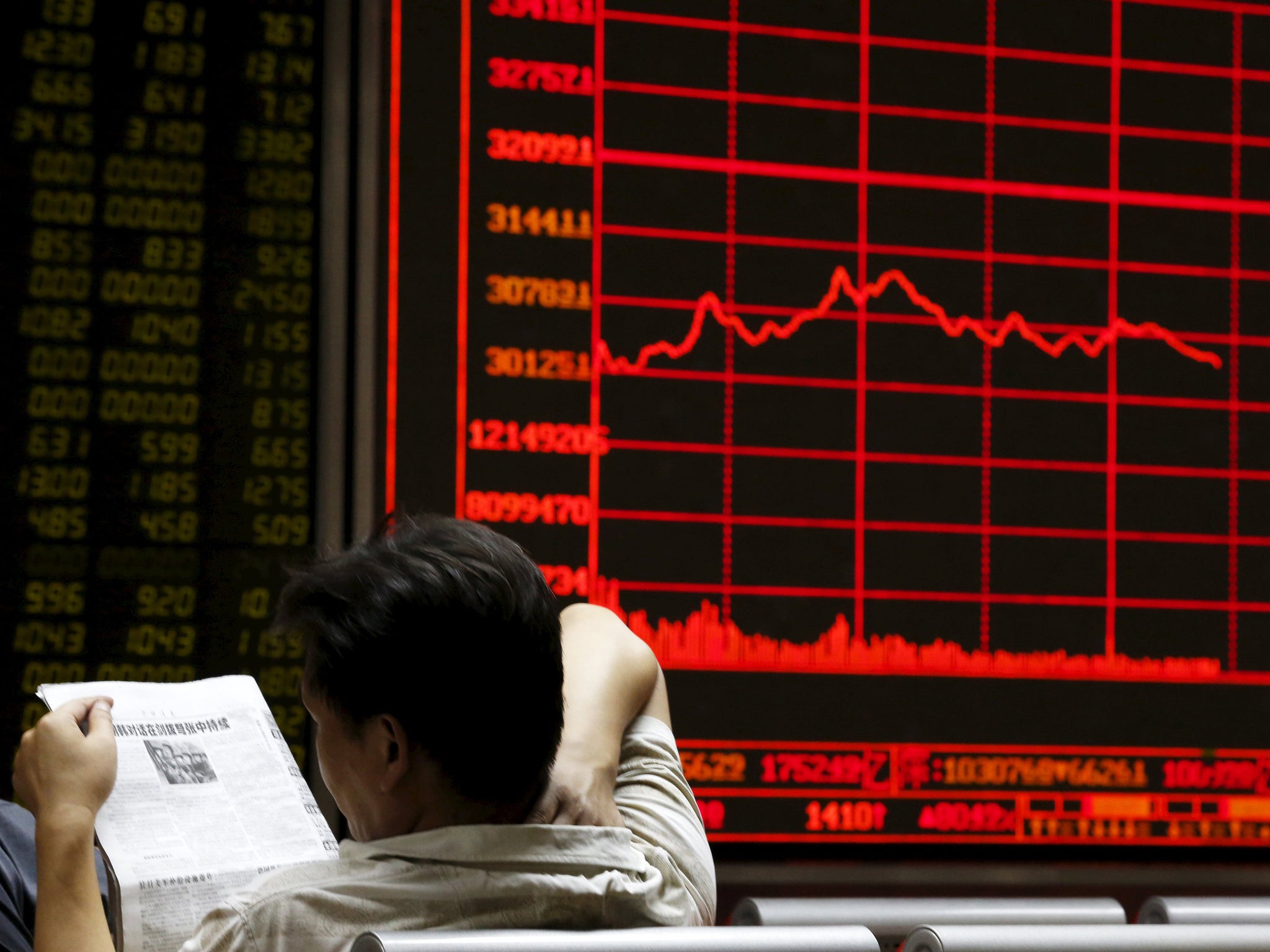China censoring Black Monday on country’s biggest search engine, Baidu, stopping citizens looking for information about financial chaos
Users looking for an explanation of why their stocks are in freefall met by a message saying that ‘Due to related rules & policy, some search results won't be shown’

Your support helps us to tell the story
From reproductive rights to climate change to Big Tech, The Independent is on the ground when the story is developing. Whether it's investigating the financials of Elon Musk's pro-Trump PAC or producing our latest documentary, 'The A Word', which shines a light on the American women fighting for reproductive rights, we know how important it is to parse out the facts from the messaging.
At such a critical moment in US history, we need reporters on the ground. Your donation allows us to keep sending journalists to speak to both sides of the story.
The Independent is trusted by Americans across the entire political spectrum. And unlike many other quality news outlets, we choose not to lock Americans out of our reporting and analysis with paywalls. We believe quality journalism should be available to everyone, paid for by those who can afford it.
Your support makes all the difference.China has been accused of censoring reports about the financial chaos in the country, stopping its citizens from looking for reports about what’s going on.
China’s “Black Monday” has sent share prices around the world into freefall, and has led to renewed worries about a slowdown in growth in the country. But its citizens don’t seem to be able to find out why.
Baidu, the country’s biggest search engine, is censoring results related to the chaos, according to George Chen, managing editor of the international edition of the South China Morning Post. When searching for the Chinese characters that translate to stock disaster, the results say that "Due to related rules & policy, some search results won't be shown".
Chinese news sites are mostly hiding the stories on their front pages — though they are covering the huge collapse.
Xinhuanet, a news site that is run by the state-run Xinhua News Agency, makes little mention of the crash. As with the People’s Daily, another official news site run by the ruling Chinese Communist Party, it buries its report on the crash low down on its home page — where it is only the third-highest story in its business section.
But both sites are reporting the stories, if readers make it there. The People Daily’s report has the headline “Stocks plunge most since 2007 as State support measures fail”, and Xinhuanet has running live updates on the news with the title “China stocks see sharpest decline since 2007”.
The Chinese state interventions mentioned by the domestic press have been sharply criticised by those outside of the country.
"The Chinese government's intervention into stock markets has proven counter-productive,” said Jasper Lawler, market analyst at CMC Markets.
Join our commenting forum
Join thought-provoking conversations, follow other Independent readers and see their replies
Comments